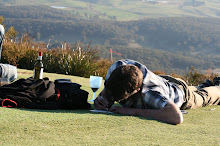Fold, unfold. Unfold, fold. I don't know what to do with it. I don't know what book Boris was talking about. And I don't know if I want to know. I thought about looking, but I just keep coming back to the pen and ink. I thought about looking but I just keep coming back. Fold, unfold. Unfold, fold.
He knew immediately that I was watching him, loneliness had sharpened his instincts. Orange trees and jasmine were growing in the courtyard and the arches were covered with vines. If life has no intention of doing you any favors, I’d rather go out where I can’t be expecting any. Selfsufficient and indifferent to the suffering of the rest of the world, with the unquestioning straightforward glance of an animal. She led me on along the littered slopes, past shattered china and bits of wire and broken springs and rusty pipes, all glimmering grotesquely in the moonlight. In a way you look older, and in another way you look younger, first one and then the other. It was here that I learned how memory can keep the diseased heart beating. None of it felt real, and for one paralytic moment I was sure that I was gliding away into another sphere of sensations. I feel a small electrical flash of love go out toward anyone I am in contact with, no matter who it is or where. The real remembrance lies in a momentary fragrance. It’s the thing hiding inside that gives us shivers. I knew he was awake, staring straight ahead as if he were gazing into a mirror, searching for something neither on earth nor in the sky. I began to hate him. Physical uneasiness can instil odd thoughts into the mind, thoughts frilled up in all their elaborateness, in all the bizarre intuitive fullness of a dream. But of course the truth is that intimacy and closeness were all an intricate hoax, an ingenious dream, a subtle but halfhearted mirage. Be fragile, be tender, humiliate yourself, and let the discolouration of dream close in on you. The reality becomes a cruel dream while the dream fades into a tender manmade reality. But all attempts at verbal communication he had surely dismissed as vanity years and years ago. A penetrating yet unseeing gaze, as if he were looking through me as through glass down corridors scarcely human. You remain alone, you can’t get inside the rest, they can’t get inside you. A million little spirits each with its own peculiar tastes, hopelessly far away from one another. But as I was beginning to doze off I heard a sound, a low buzz, steady and quite unexplainably frightening, the sound of time rolling past, and the world turning on its tiny axis. In my dream it appeared, among other things, that the oranges had dried out, had turned hollow and metallic, had changed into little bells.



